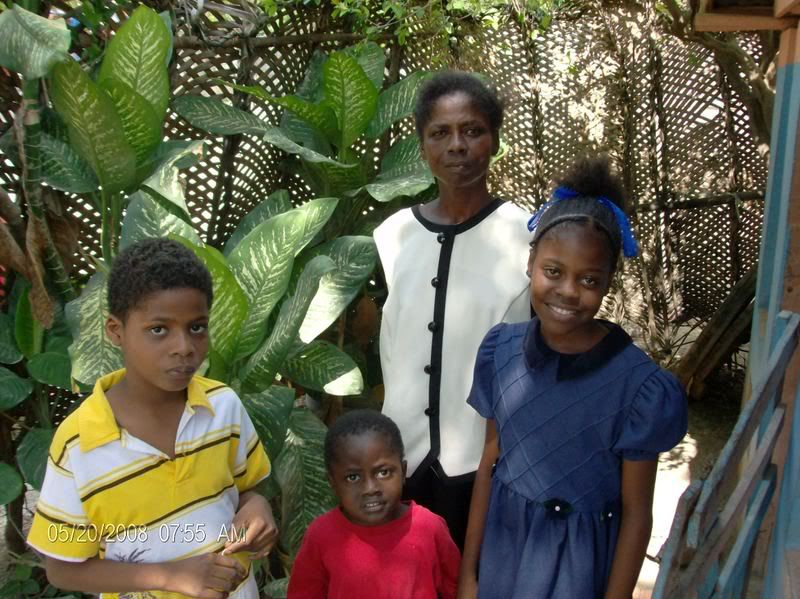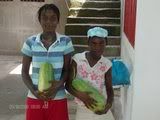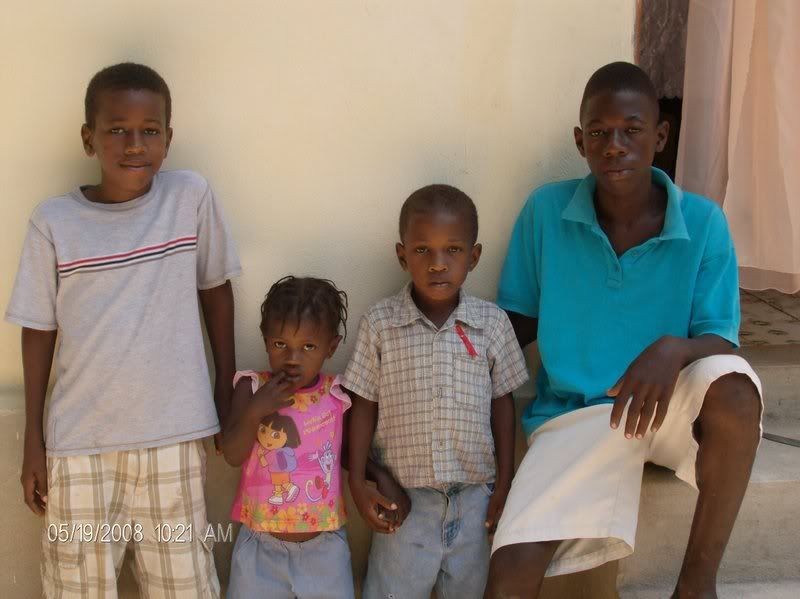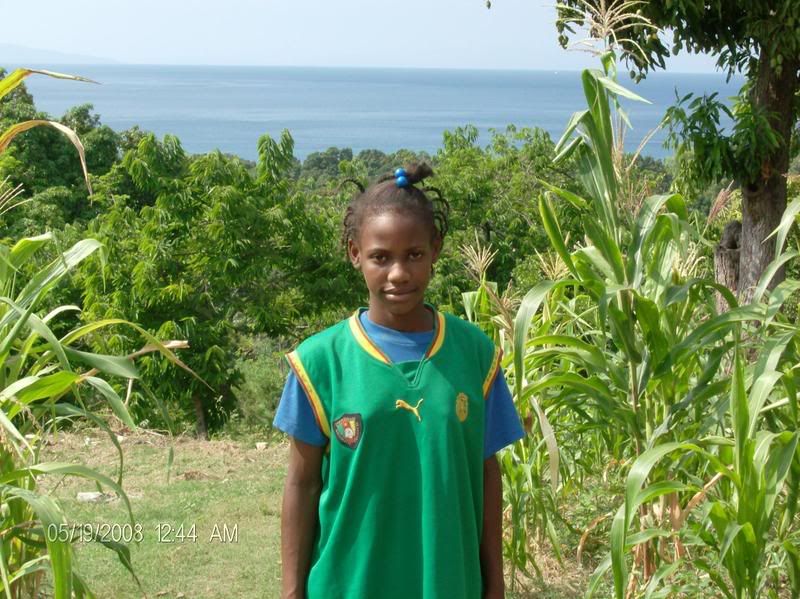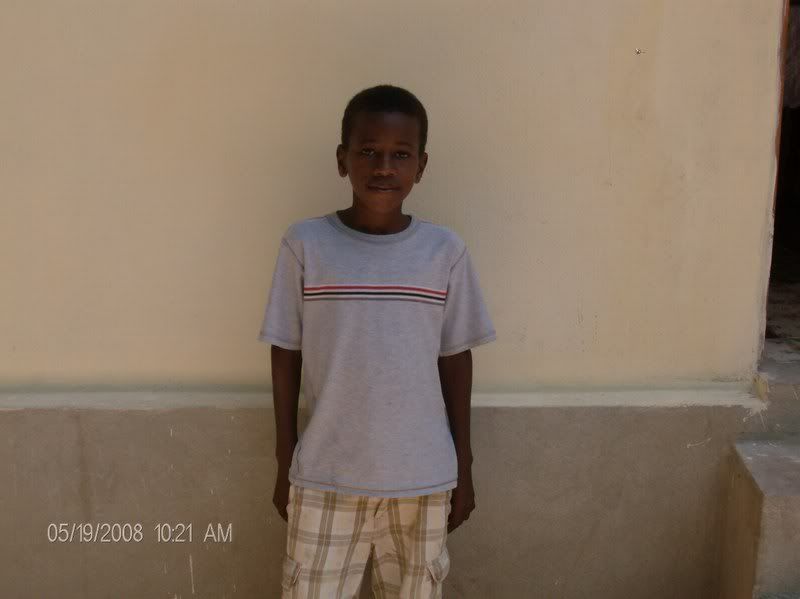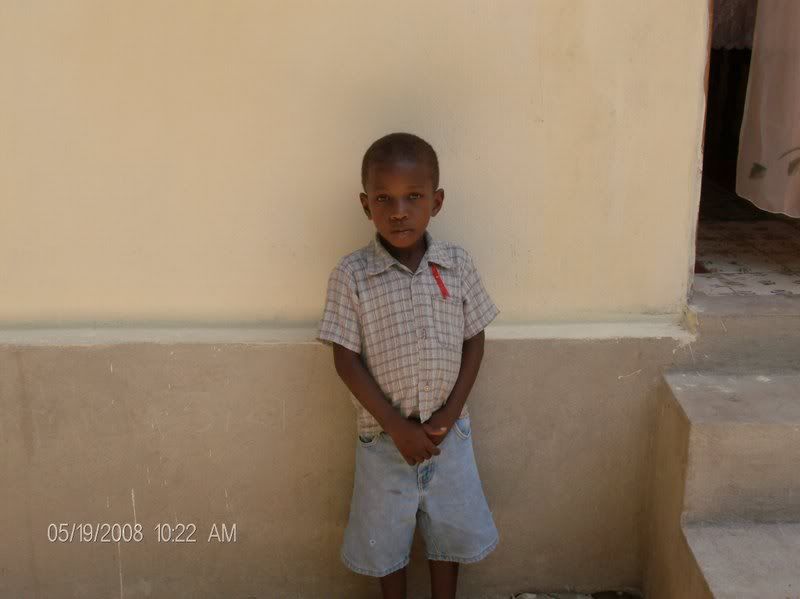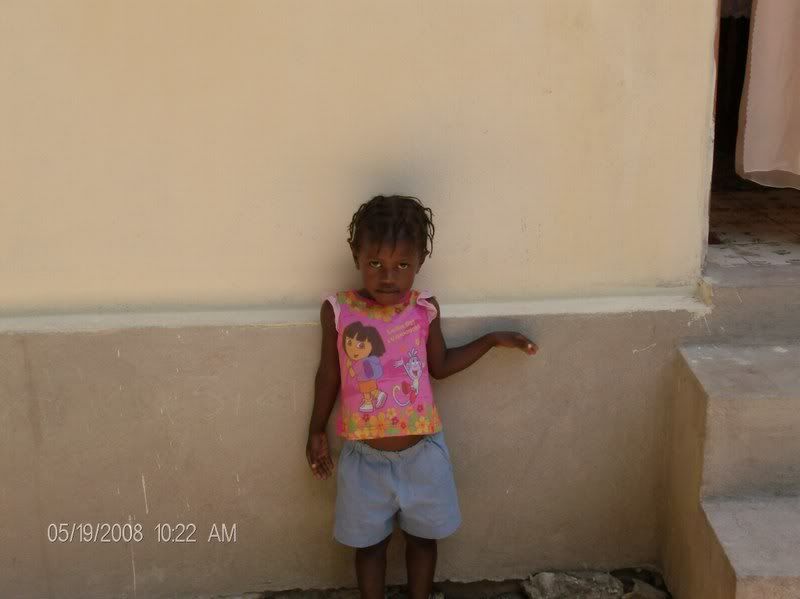Luckner's parents do not know much about why their son ends up being like this. They feel the stinging shame of having a "KoKOBE," a son who is handicapped. They do not know where to turn to get valuable information on Down Syndrome. They have never heard about that word before even though their son is 14 years old. Information would equip them to face the people who are putting them down. They know what many other people do not know about their son. He is easy to please. He is a hard worker. His sense of safety and awareness is low. He is very sociable. He accompanies his father to the fields. He is his main companion. Even though he is non-verbal, his presence is sufficient. Luckner practically receives no special services at school. No wonder he has been falling behind.
Luckner has no annual or triennual IEP meeting. He has no advocate. People are busy trying to avoid him instead of making time for him. He felt comfortable being around me while I was there. Others were telling him to go away while I intervened and advocated for him. I explained to them the type of services he could qualify for if he was born in California among other states.
Could there be some type of foundation that provides counseling and information to parents of kids born with clear disabilities? This boy may have been too old by then. But other children born with his condition could benefit from such services in Haiti. Besides the food, nutrition and education problems faced by this family, they have to deal with lack of information on a condition that a state like California entitles parents to receive services for. It's many worlds away. Until now, his mother keeps repeating the fact that her son was born this way because she had seen a disabled kid while she was pregnant with him.

Luckner's parents are also seeking a sponsor for their son. Are you ready to help him out?

